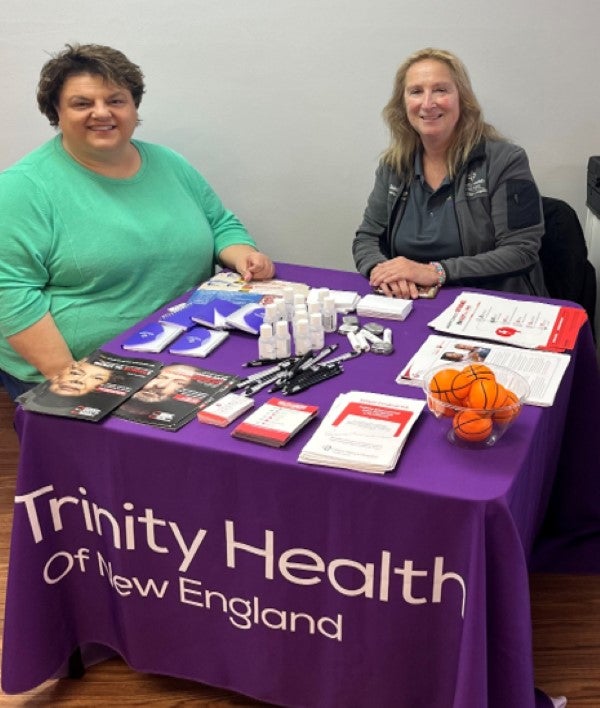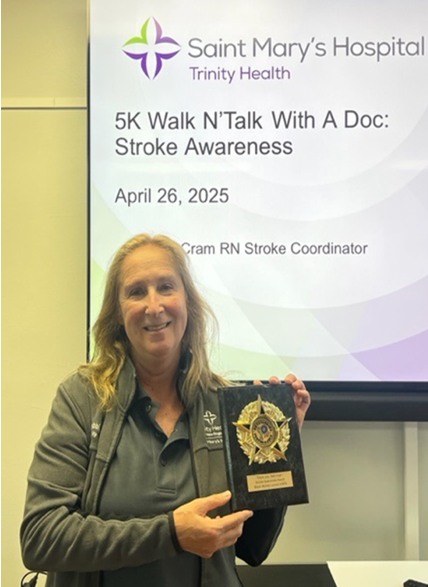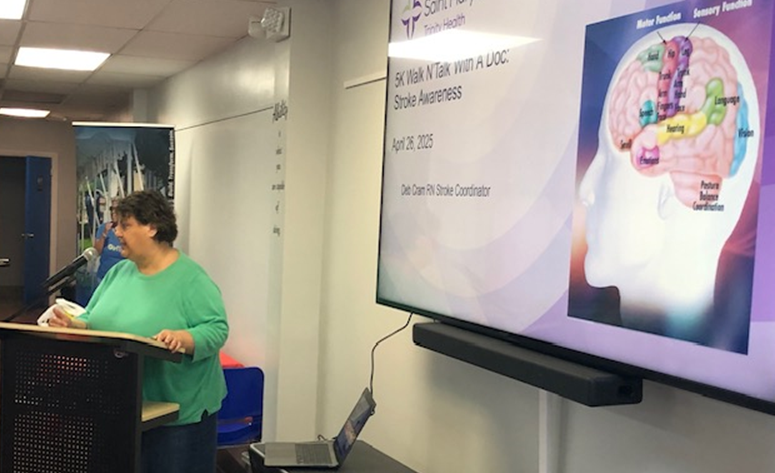Your Stories: 5K Walk N’ Talk with a Doc Event Highlights Stroke Awareness
May 20, 2025Categories: Events
In recognition of May being Stroke Awareness Month, the 5K Walk N’ Talk with a Doc event took early action on April 26. Saint Mary’s Hospital’s Deborah Cram, RN, MSN, ACM, Stroke Coordinator, and Carmelina Calabrese, Patient Relations Specialist, helped spread the word about stroke awareness as presenters at the event in Waterbury.

Along with Saint Mary’s, the walk and talk collaborated with GirlsTrek, Black Women United, Helping Hands in the Community, and Waterbury Bridge to Success. During the presentation, stroke information was handed out. Participants also had the chance to get their questions about stroke answered during a Q&A period.
According to the Centers for Disease Control (CDC), “Stroke is a leading cause of death for Americans,” but knowing the warning signs and symptoms can help save someone’s life. Deborah spoke about the symptoms, risk factors, and prevention strategies regarding stroke. She also stressed the importance of calling 9-1-1 whenever symptoms or signs of a stroke are present. When identifying a stroke, both the American Heart Association and American Stroke Association want you to B.E.F.A.S.T.
B—Balance: Is the person suddenly have trouble with balance or coordination?
E—Eyes: Is the person suddenly having blurred or double vision? Or a sudden loss in vision in one or both eyes without pain?
F—Face: Ask the person to smile. Does one side of the face droop?
A—Arms: Ask the person to raise both arms. Does one arm drift downward?
S—Speech: Ask the person to repeat a simple phrase. Is the speech slurred or strange?
T—Time: If you see any of these signs, call 9-1-1 right away.
Raising awareness about stroke is not limited to the signs and symptoms. It also encapsulates how community members can keep the conversation going and lend a helping hand to those impacted by stroke. Carmelina spoke about volunteering at the hospital. Volunteering offers meaningful ways to give back to the community while gaining valuable experience in a health care environment. She emphasized that volunteers support staff and patients in various roles, such as greeting visitors, assisting with administrative tasks, delivering supplies, or simply offering companionship to patients. Overall, their presence helps create a more compassionate and efficient care setting.
The CDC shares that stroke risk increases with age, but strokes can—and do—occur at any age. Therefore, awareness not only helps everyone stay a step ahead of a stroke, but it can also save the life of a person experiencing one.
Submitted by Deborah Cram, RN, MSN, ACM, Stroke Coordinator, Saint Mary’s Hospital
Have a story you want to share? Submit your story at TrinityHealthOfNE.org/YourStories


